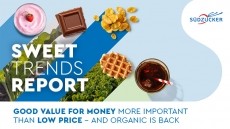BASF becomes 'supporting' member of the Forum for Sustainable Palm Oil

The oleoderivative producer joins fellow Forum members Unilever and Ferrero as a multinational committed to producing sustainable oil palm products.
BASF remain a prime player in the palm oil space having expanded its purchasing volumes by about 32,000 metric tons to 158,000 metric tons back in 2016.
The firm nearly doubled its sales of certified products based on palm kernel oil in this year, with an overall oil palm exposure of 508,000 metric tons.
“Becoming an official supporter of FONAP is an important signal for BASF in its ongoing efforts to foster sustainable oil palm products,” said Xavier Susterac, senior vice president BASF Personal Care Europe.
“This underlines our commitment to transform the market towards sustainable renewable resources and to help our customers fulfil their FONAP commitments.”
In an analysis of the German palm oil sector, sustainability specialists, MEO Carbon Solutions identify the country as offering “high market potential for certified palm oil and palm kernel oil for producers and processors.”
“The main challenge is to connect palm oil producers and processors of certified palm oil with the market,” the analysts said. “Current market bottlenecks provide a chance for palm producers to enter the market and to satisfy customers’ needs.”
In 2013, nearly 1.5 million tonnes of palm oil and palm kernel oil were consumed in Germany. Of the 315,700 tonnes consumed by the food sector, MEO believe more than 50 % of the palm oil consumed is sustainably certified.
Palm oil issues
Palm oil's desirability, borne from its lower cost, high oxidative stability (saturation) during the frying process and purported health benefits, have been offset by accusations of questionable manufacturing practices that include illegal deforestation, human rights violations, and widespread environmental damage.
Viable alternatives for the food industry remain scant although a recent study believed it possible to replace palm oil by liquid oils, blends with exotic fats, or blends with fully hydrogenated liquid oils, although this could arise in some technological challenges.
Along with FONAP and Roundtable on Sustainable Palm Oil (RSPO) membership, BASF’s palm sourcing policy also follows the High Carbon Stock (HCS) Approach, stopping the deforestation process via forest and peat conservation as well as implementing social and labour rights.
Membership revision
“We engage intensively with our stakeholders at all levels of the supply chain to understand their needs and help them achieve their targets,” said Susterac.
“Our customers rely on our expertise to fulfil the additional requirements necessary to meet their commitments. Beyond this, we support smallholders as an important link within the value chain.”
Daniel May, secretary general of FONAP welcomed BASF as an official Supporter-member of FONAP, adding, “We are happy to strengthen our network and multiply our joint efforts”.
BASF’s membership is possible by the FONAP General Assembly’s decision to revise its membership charter, ‘opening up’ the upstream part of the palm value chain – the producers of oleoderivatives as “Supporter” of the association.


























